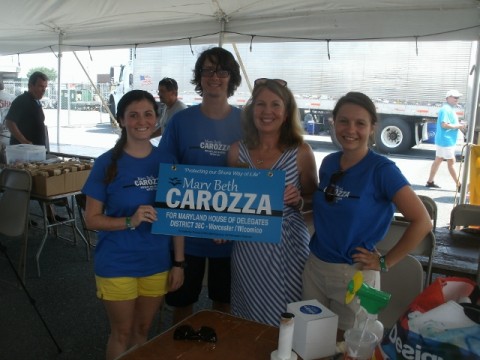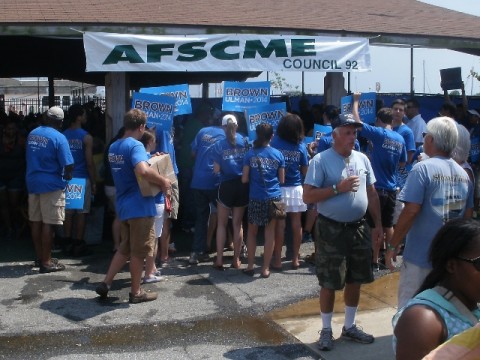In all the hoopla over the Tawes Crab and Clam Bake this week – along with several statewide race announcements – an item from one of my favorite local political hotbeds was more or less overlooked.
But a few days ago I received an e-mail warning me about a proposed shooting ban in Cecil County. Sponsored by Councilman Alan McCarthy the bill would, in the words of Mike Dawson of the Republicans of Cecil Political Action Committee:
…ban shooting in Cecil County and leave law abiding citizens defenseless against criminals attempting to harm them or their property.
McCarthy defended his position, noting in the Cecil Daily that he had “numerous requests from citizens” about such legislation after the death of a ten-year-old girl on New Year’s Eve from a stray bullet, and pointing out on the Cecil Times website that this was only to “stimulate a discussion.” The council member also added he was seeking the family’s permission to attach her name to the law.
Undoubtedly, what happened in Cecil County was a tragic accident. It surprises me, though, that we haven’t already advanced enough in ballistics and microstamping to determine the origin of the shot which killed Aaliyah Destiny Boyer and file appropriate charges against the shooter. I’m not a lawyer (and don’t play one on TV) but I would think that’s grounds for negligent homicide.
Yet in his diatribe against the proposal, Dawson notes that:
(I)f you are defending yourself on your property against an intruder be sure to think about what direction you’re shooting and get permission from your neighbor first.
I’m sure the burglar will wait for you while you get permission from your surrounding neighbors and double check that you’re not 150 yards from a school!
It’s also pointed out that the law would only affect unincorporated areas of the county, which would tend to have the larger proportion of gun owners.
However, the other aspect which piqued my interest was reading that McCarthy’s proposal was based on a law in Harford County. Obviously that’s David Craig country, so the question whether the law was passed during his term is an important one. But a quick Google search led me to the Harford County code, and the corresponding law section (260-4) was apparently passed way back in 1985. At that time, Craig was still involved with local government so he’s off the hook here.
Perhaps a better question to ask, though, is whether anyone has been charged with violating the Harford County law? Obviously there was a purpose for its introduction, and it’s likely McCarthy had some idea the law was on the books there. But there are thousands of laws which are written but either aren’t enforced or simply not enforceable. Many of those are the same “feelgood” legislation which has a person’s name attached to it.
Because there was no formal introduction of legislation – yet – by McCarthy, the question remains purely theoretical. It doesn’t seem like a law which needs to be on the books because, as opponents point out, it’s the sort of law ripe for abuse by overzealous prosecutors – the sort of plea bargain count dangled by a state’s attorney in front of an otherwise innocent defendant who can’t afford to risk trial on some other charge. No one is concerned about gunfire being too close to a school when an intruder bent on harming you or your family is breaking into your home.
I suppose the lessons we can learn from McCarthy’s law are to have steady aim and shoot for center of mass so stray bullets don’t cross onto someone else’s property.

































